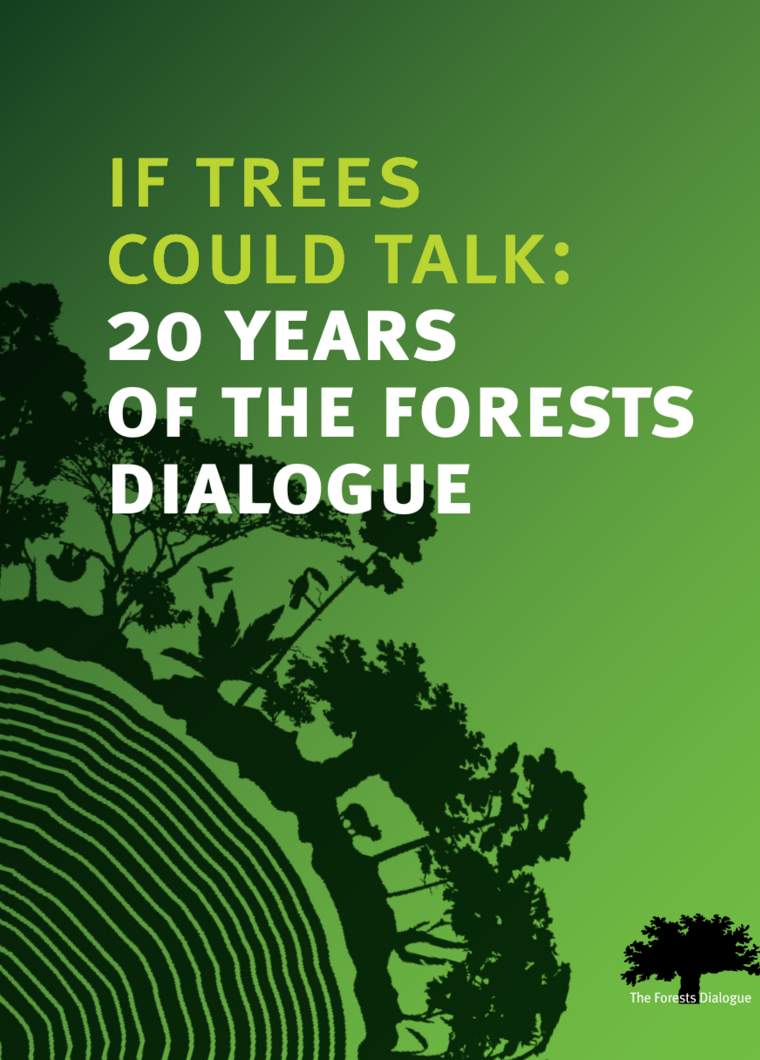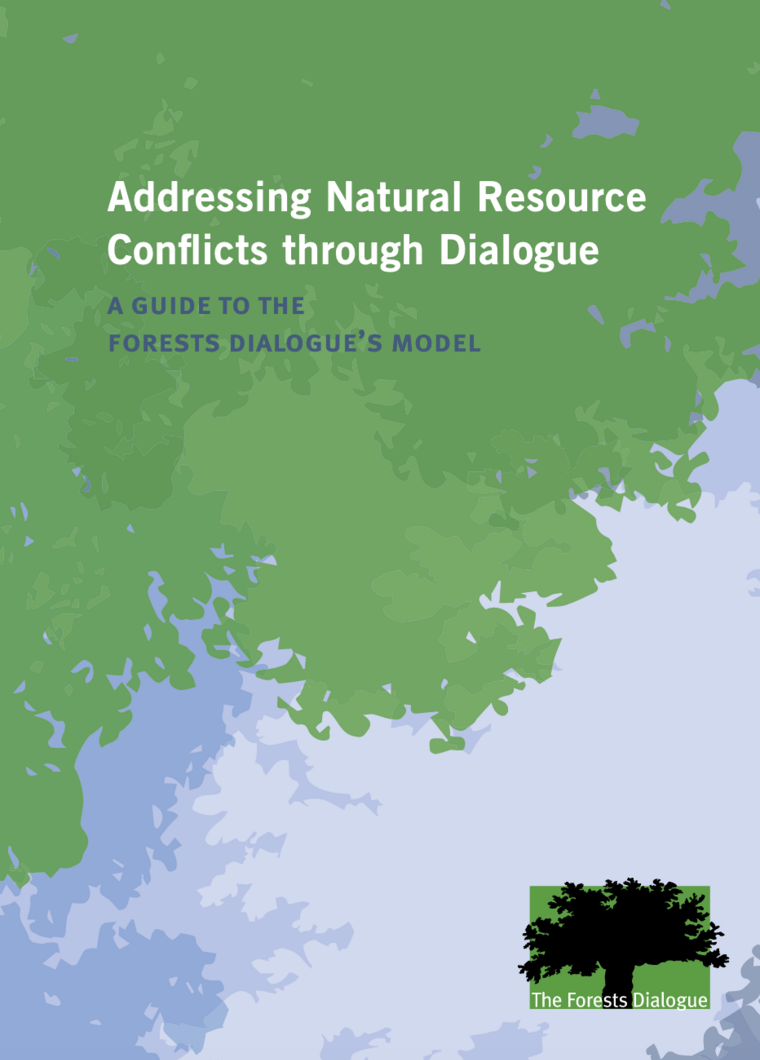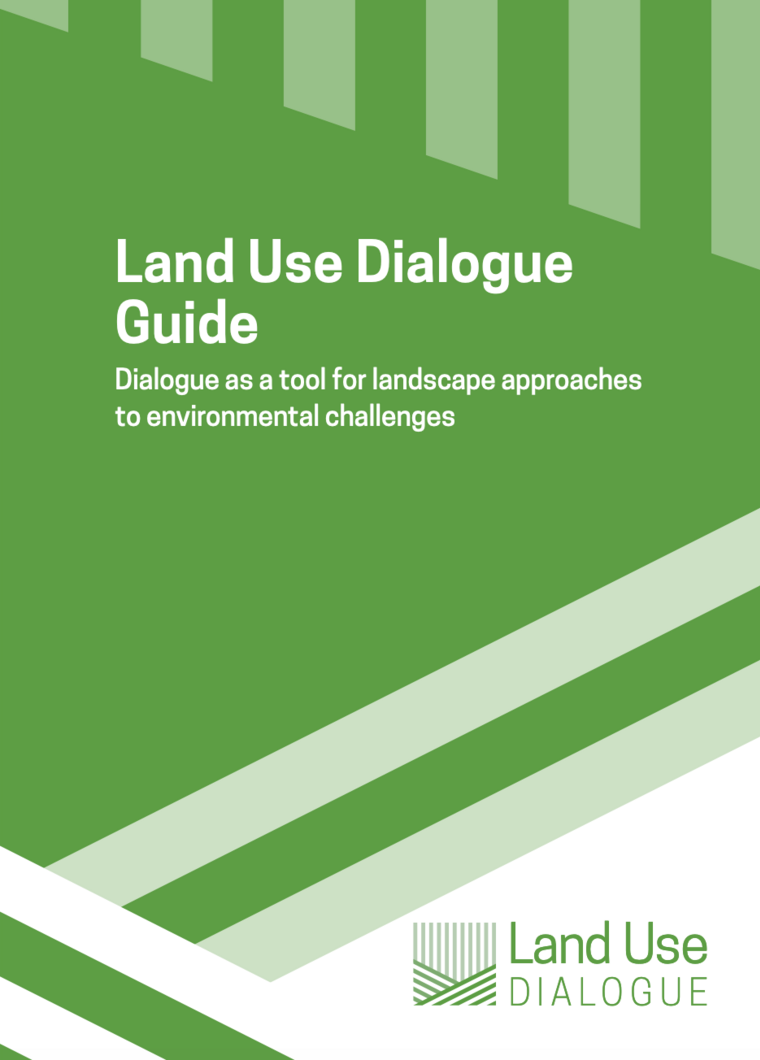Publications
The Forests Dialogue produces and publishes a variety of documents - maintained in a comprehensive library below. The majority of TFD publications are developed through TFD’s initiative process, including the following major publication types. In the lead-up to an initiative, a foundational Scoping Paper is produced to provide context for the scoping dialogue. Background Reports that provide stakeholders with relevant location-specific content are created for each subsequent dialogue following the scoping dialogue. At the conclusion of a dialogue, the co-chairs, with help from the TFD secretariat, produce a Co-chairs’ Summary Report that captures the key perspectives, discussions, agreements, and next steps from the dialogue. At the conclusion of an initiative, the Advisory Group, co-chairs, select leaders, and the Secretariat synthesize the initiative’s conclusions into a TFD Review. Additionally, Country Reports that aggregate learnings from a number of country-specific dialogues are typically produced for initiatives that involve numerous country-level dialogues, including TFD’s REDD+ dialogues. TFD also facilitates the production of guides and policy recommendations including a guide to the TFD process, the Land Use Dialogue methodology. These are geared towards practitioners or policy makers and contain actionable steps that stakeholders can take to enact change based on learnings gathered through the TFD process.
Navigate TFD’s extensive publication database using the search function below, or visit specific dialogue or initiative pages to see their associated publications.
Forests may be about to get a lucky break. If opportunities are seized and problems ironed out, international mechanisms to support reduced emissions from deforestation and forest degradation and enhanced forest carbon stocks (“REDD-plus”) will give efforts to sustain forests and the livelihoods linked to them their best-ever chance of success.
The Ghana dialogue on REDD-plus readiness was convened on 16 - 19 November 2009. The dialogue attracted a wide
On December 1-4, 2009, The Forests Dialogue (TFD) convened the third Field Dialogue of the Investing in Locally Controlled Forestry (ILCF) initiative in Ohrid, the Former Yugoslav Republic of Macedonia (hereafter Macedonia, for abbreviation).
This paper is a contribution to The Forests Dialogue on the implementation of REDD mechanisms to Guatemala. In the first three chapters, this document provides an overview of Guatemala from its historical, geographical, social, economic, and natural context.
This paper has come about from two lines linked to two organizations: TFD and CEPF; and has been amended by the national input from Macedonia and Serbia.
On 26–29 October, 2009, The Forests Dialogue (TFD) organized the first of three field dialogues on REDD readiness. The meeting was held in Belém, the capital of the state of Pará in the Brazilian Amazon.
This paper provides background information to inform ‘The Forests Dialogue’ (TFD) REDDplus readiness discussions in Ghana scheduled for November 16-19, 2009.
This background paper, as a contribution to the TFD Field Dialogue on REDD in the Brazilian Amazon, has been organized in the following manner: The first three sections provide an overview of the region in terms of i) the geographical and historical context ii) key characteristics of contemporary Brazilian Amazonia, and iii) recent trends and drivers of deforestation and forest degradation.
On September 21–24, 2009, The Forests Dialogue (TFD) convened the second Field Dialogue of its Investing in Locally Controlled Forestry (ILCF) initiative in Kathmandu, Nepal.
On August 22–25, 2009, The Forests Dialogue (TFD) convened the first field dialogue of its Investing in Locally Controlled Forestry (ILCF) initiative in Gamboa, Panama, hosted by the International Alliance of Indigenous and Tribal Peoples of Tropical Forests (IAITPTF).




